Fighting to feel valued, workers organize and strike as union approval rating rises
For as long as she can remember, 61-year-old Sara Thompson wanted to help others. She became a respiratory therapist at Michigan Medicine, loving her job and her patients for more than 35 years, including during the darkest days of the pandemic.
Then, something happened: In July 2020, the University of Michigan eliminated its 2-to-1 match on Thompson's retirement plan, as it did for all nonunionized workers at Michigan Medicine, its hospital system. The goal was to make up financial shortfalls created by the pandemic.
Thompson took the move as a personal affront. "I felt highly devalued. I felt very underappreciated," she said. "Here I am, showing up, I never called in sick. That was a scary time for all of us. I signed up for this job. ... I'm very proud of what I do. I do it to the best of my abilities."

That's when Thompson, who lives in Ypsilanti and has no family members in unions, decided she needed to belong to a labor union. And even though the match was reinstated in January 2021, she and other respiratory therapists across Michigan Medicine pursued unionization as a way to advocate for staffing, safety and pay issues. Their new union was recognized in June.
The sentiments and actions of Thompson and her colleagues mirror those of workers throughout the state and across the nation as a perfect storm of economics and emotions — still raw from the national trauma of the pandemic ― that has created a season of union activism and labor strikes. Unrest has been building. Labor strikes increased 50% between 2021 and 2022, according to the Cornell University School of Industrial and Labor Relations. But this summer, especially, workers throughout the state and across the nation are saying no to business as usual. And they're doing so with a vigor unseen in recent years.
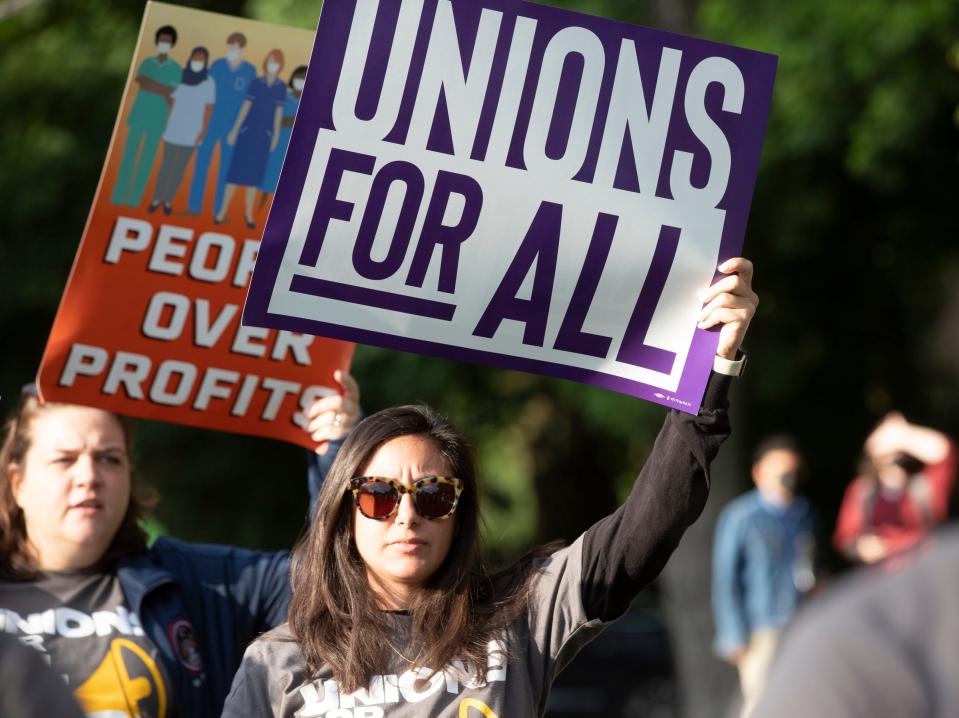
"It is very unusual for this many strikes and large strikes happening simultaneously," said Art Wheaton, director of labor studies at Cornell University's School of Industrial and Labor Relations. "It appears much more of a labor movement than isolated issues."
Graduate student employees at the University of Michigan have been on strike since March, seeking pay increases and expanded protections against sexual harassment. The GEO last struck in 2020 over concerns about COVID-19 safety and the university's relationship with police agencies.
In June, workers at a Redford nursing home struck for eight days — one sign on the picket line read: "We are heroes. Don't treat us like zeroes" ― before reaching an agreement that gave them pay increases.
The Writers Guild of America and the actor's union, SAG-AFTRA, are on strike, the first time both unions have struck simultaneously since 1960. Among their asks: better residuals from streaming platforms and assurances their jobs won't be lost to AI. Until then: expect lots of reruns.
UPS workers are scheduled to return to bargaining July 25, though the union has made it clear that approximately 340,000 full- and part-time workers are poised to strike if they can't reach an agreement on benefits and pay; their contract is to expire July 31. UPS workers last struck in 1997, well before e-commerce ruled retail and packages arrived reguarly on shoppers' doorsteps and also well before UPS workers were considered essential during the pandemic.
Meanwhile, talks between the United Auto Workers, representing roughly 150,000 workers at Ford, General Motors and Stellantis, and the automakers have begun. Union leadership has made it clear they will hold tough with the automakers when it comes to reinstatement of cost of living increases and the elimination of a two-tiered pay structure, among other things. Their contract expires Sept. 14. Some people who watch the industry and labor are predicting a strike.
Marick Masters, a Wayne State Unviersity business professor and labor expert, said the activity is an indicator of broader unrest. "The tensions in the workforce are real (but) they're wider than the actual number of strikes."
Public opinion on labor's side
While only roughly 10% of the nation's workforce belongs to a labor union, 71% of Americans approve of unions — the highest approval rating since 1965, according to a 2022 Gallup survey. Pre-pandemic, 64% of Americans approved of unions. In 2009, 48% approved. The current level of support may create sympathy for workers who organize or strike.
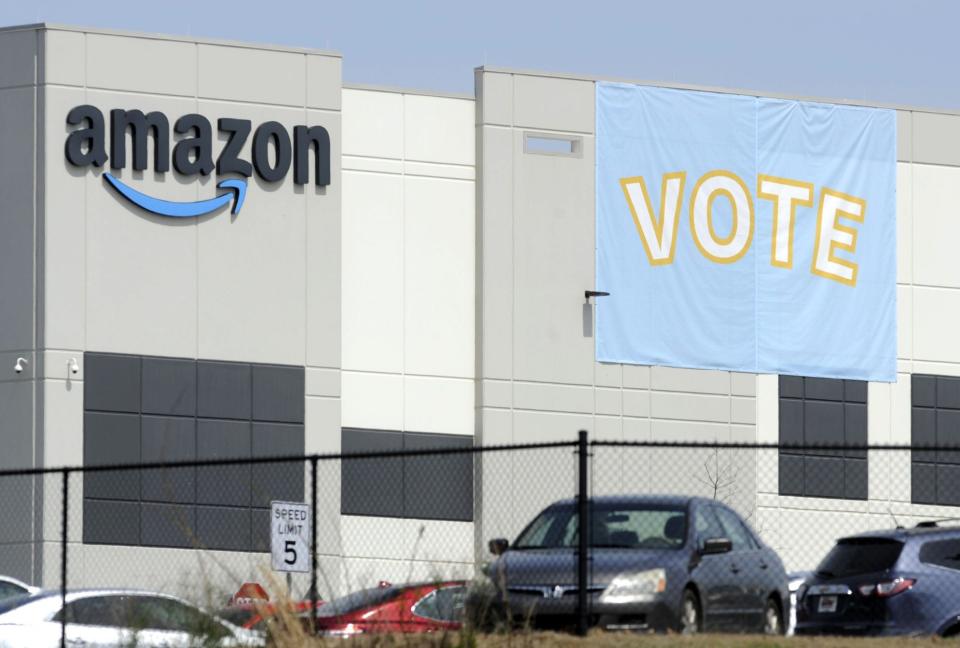
There are "increased efforts to organize workers at companies like Starbucks. You see increasing efforts to organize workers at Amazon," Masters said. Earlier this month, workers at Amazon's warehouse in Pontiac walked off the job to demand safer working conditions and better pay. The picket lasted a matter of hours.
Experts say a number of issues are contributing to these labor actions.
Inflation is one of those issues. While the rate of inflation has slowed since it reached 9% in 2022, the cost of living increases associated with that rise erased or reduced financial gains made by workers.
Nearly everything costs more, from groceries to cars.
“At the same time, you've seen rising income inequality in the United States," Masters said. The rich are getting richer and the rest of the population is not and "the schism in society between those who have and have not has grown," he said.
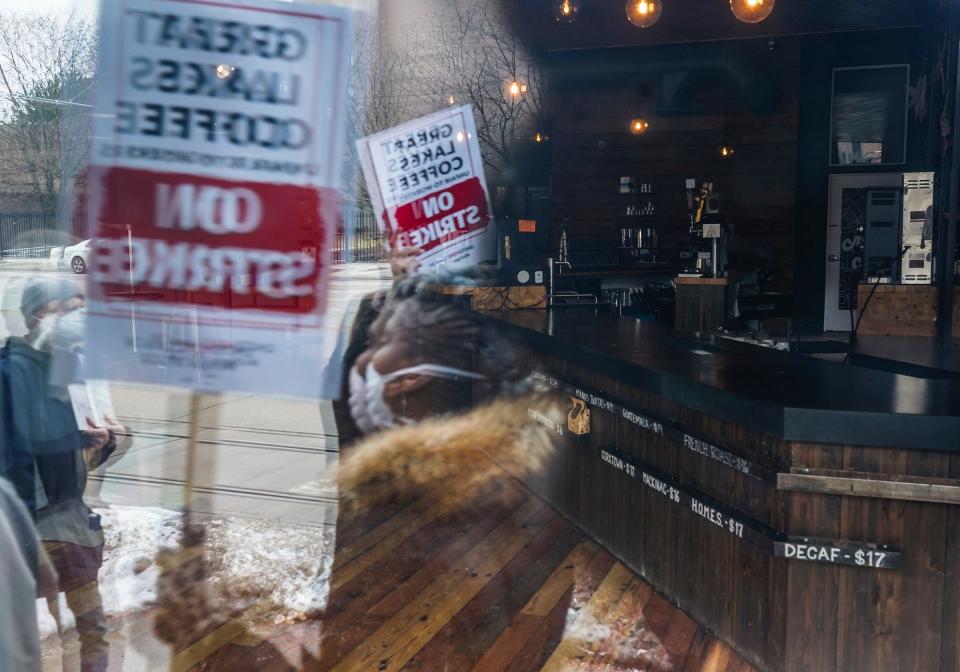
So has resentment.
Workers are fed up toiling for executives who have enough money to fly to space and buy sports teams but aren't willing to share their wealth or provide working conditions employees consider humane, Wheaton said. Only last month, with contract talks underway and the threat of a strike looming, did UPS agree to equip delivery vehicles with air conditioning.
Workers are confronting employers and are doing so with a new boldness, including in Detroit. UAW leadership decided to forgo the traditional handshakes with automaker executives at the beginning of contract talks. “I’m not shaking hands with any CEOs until they do right by our members, and we fix the broken status quo with the Big Three,” UAW Shawn President Fain said earlier this month during a Facebook Live address. “The members have to come first.”
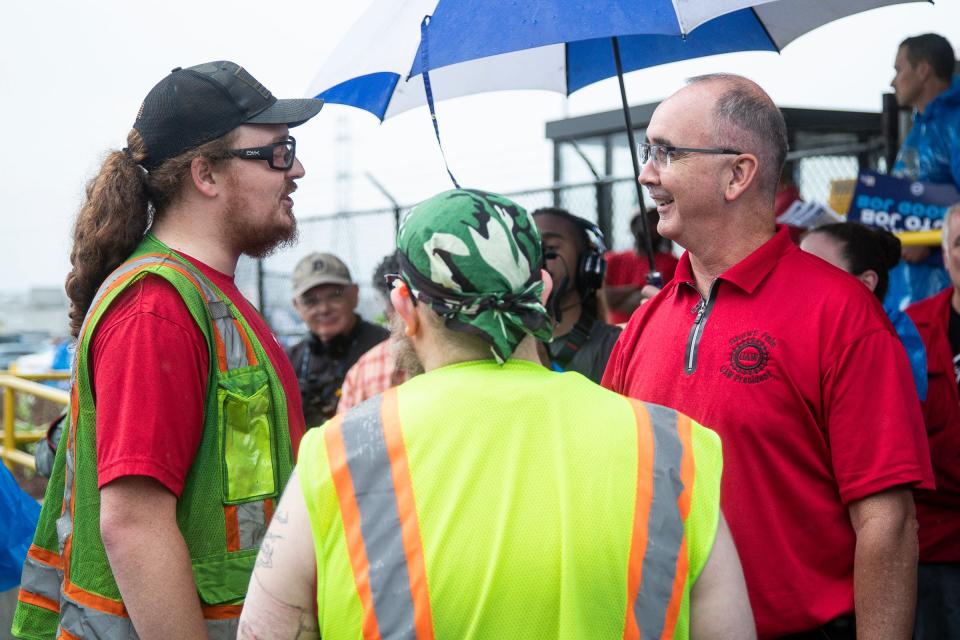
Experts suggest the nation's low unemployment rate is one of the factors driving the boldness. "This is a great environment in terms of worker bargaining power," said Jagadeesh Sivadasan, a University of Michigan professor who teaches labor economics. "If you look at the statistics on how many people are seeking work divided by the number of openings … it’s very much more job openings than people seeking work."
Added Wheaton: "There's always a risk in a strike of getting fired or losing your job. There's less perceived risk in a strike if you know or think you can go across the street and get a job with decent pay someplace else. So, if you fall on your face and lose the strike you can still ... get a relatively good job."
Workers also know that companies need them to produce and deliver amid the pent- up demand for goods and services caused by the pandemic. People weren't buying a lot of things or going out during the crisis and now, Wheaton said, people are willing to travel and willing to go to services and see movies.
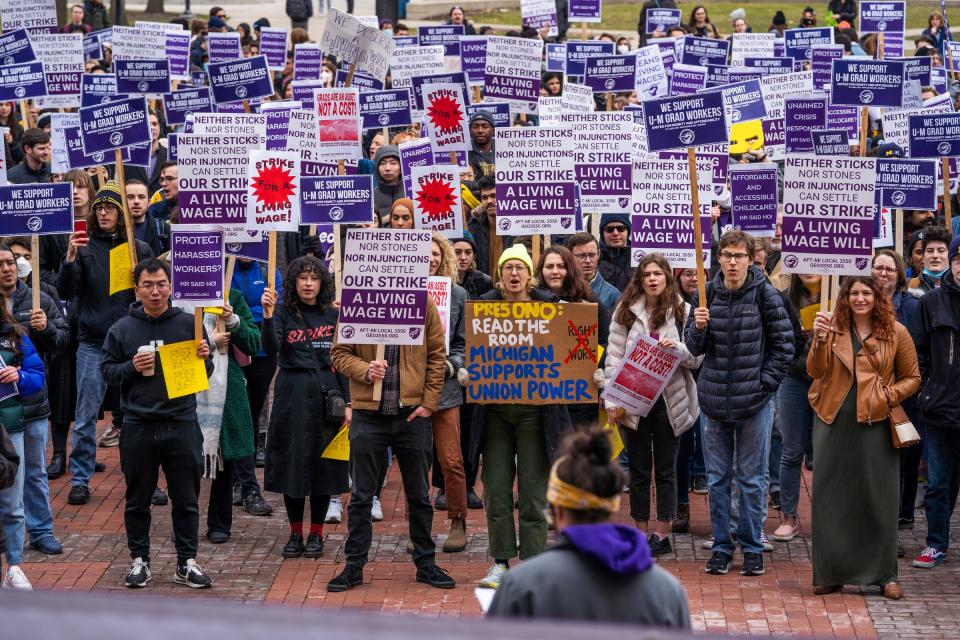
"What we're experiencing right now is a really exciting moment in labor, where workers are taking control because we know that we're the ones that make the universities/the companies/the industries run," Sarah Tsung, a 24-year-old graduate student instructor at the University of Michigan who is on strike, said in an email.
More on UAW talks: Here's what happened when UAW, Detroit Three leaders kicked off bargaining
More: Biden, UAW President Fain meet at White House
National trauma fuels breaking point
Perhaps another big factor in what Twitter users have dubbed #hotlaborsummer, is something less tangible than the economy — a change in the psyche of workers brought on by the pandemic.
Whether on the front lines or the home front, the lives of workers were upended with layoffs, shifts in responsibilities ― automotive companies went from producing cars to ventilators; teachers and students met in virtual classrooms — and profound loss, as more than 1.1 million Americans died from the coronavirus and 104 million others became ill.
Workers are worn out and they want to feel valued for what they did during the pandemic.
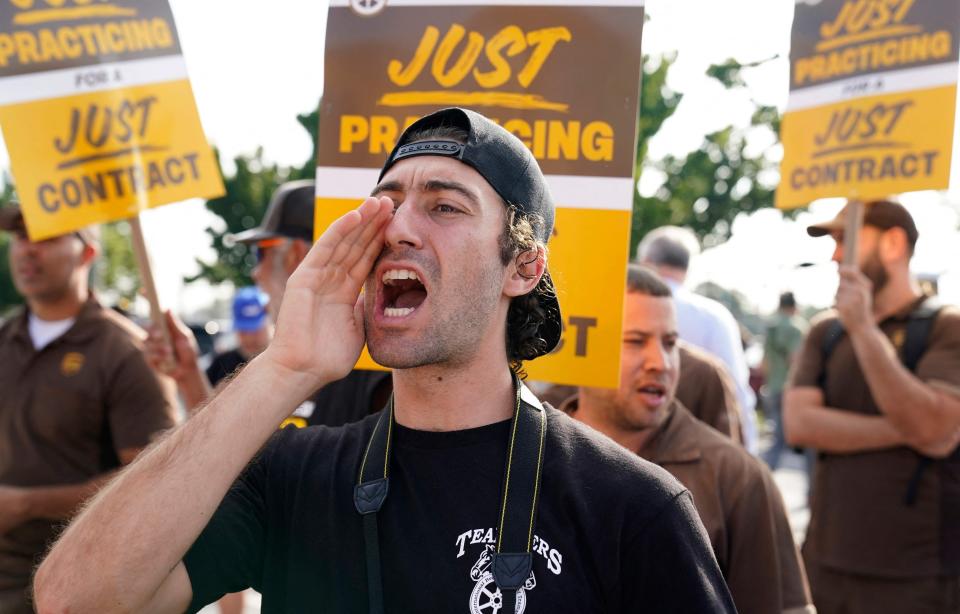
“I think the pandemic highlighted tensions," said Masters. "It’s particularly visible in the UPS strike. … They were regarded as essential workers. You had to deliver those products and they worked during the pandemic and were at risk. I think they were saying, 'We got the country through this very problematic time period in which we were in a public health crisis,' " Masters said, and then they had to fight for air conditioning in their trucks during record heat in wide swaths of the country.
The end of World War I, which coincided with the influenza pandemic, and the end of World War II saw a surge in labor strikes. Workers had sacrificed during the war, pivoting to fueling the defense industry, rationing and when the war was over and the floodgates of consumers’ pent-up demand opened, they, too, wanted to be compensated for their goodwill and good work during the crisis.
But, in the end, it all comes down to this: After a national trauma, workers want to feel valued and, right now, many of them do not.
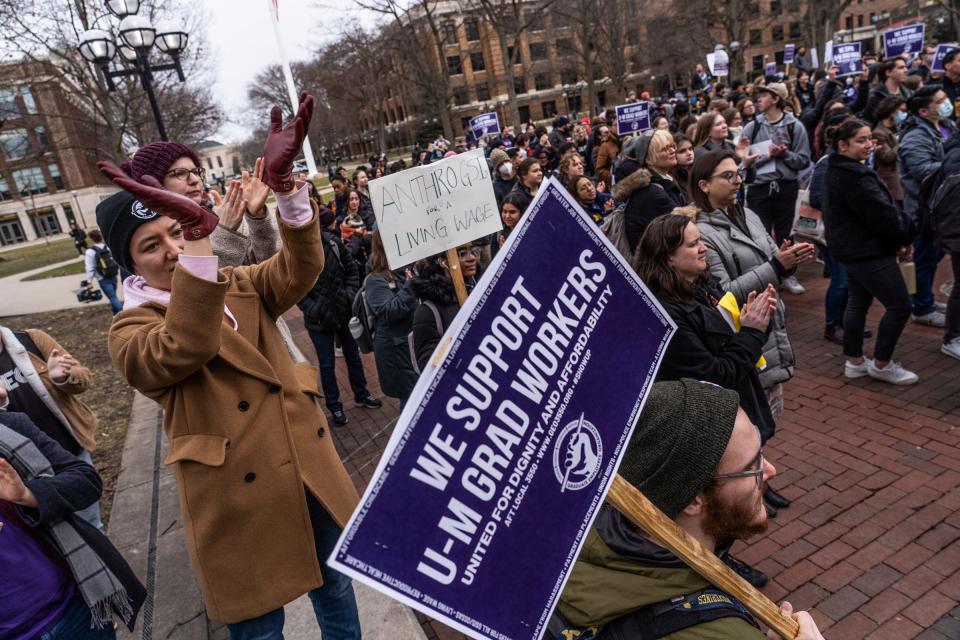
"I think the University of Michigan is the best institution for health and healing, no question in my mind, " said Thompson, who plans to retire later this year. "There's none better in the state, none. I believe in what we do there."
She just wanted her employer to show it believed in her, too.
Free Press automotive writer Eric Lawrence and summer apprentice Jack Williams contributed to this report.
Contact Georgea Kovanis: gkovanis@freepress.com
This article originally appeared on Detroit Free Press: Fighting to feel valued, workers strike as union approval rating rises

